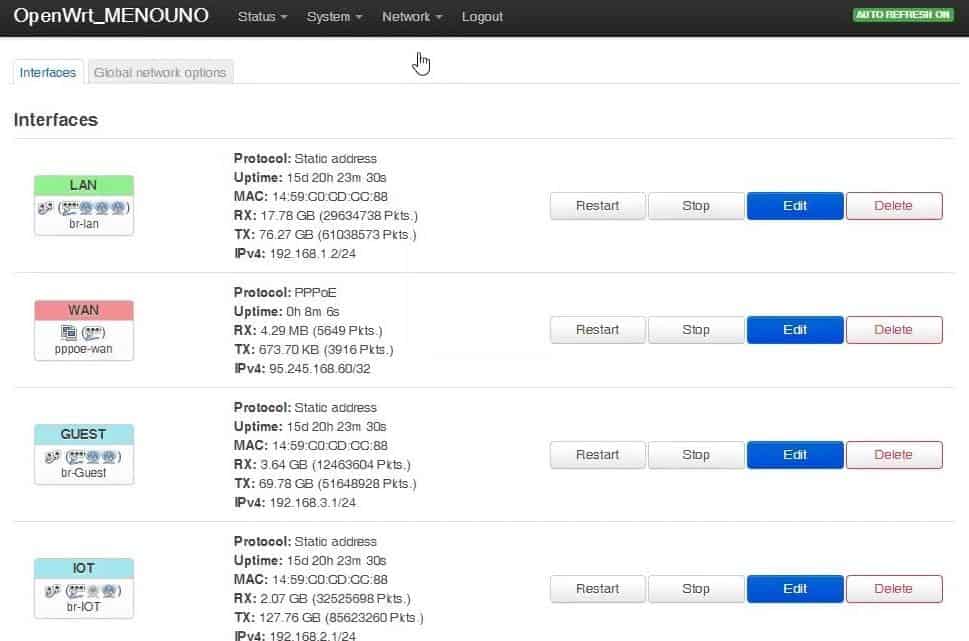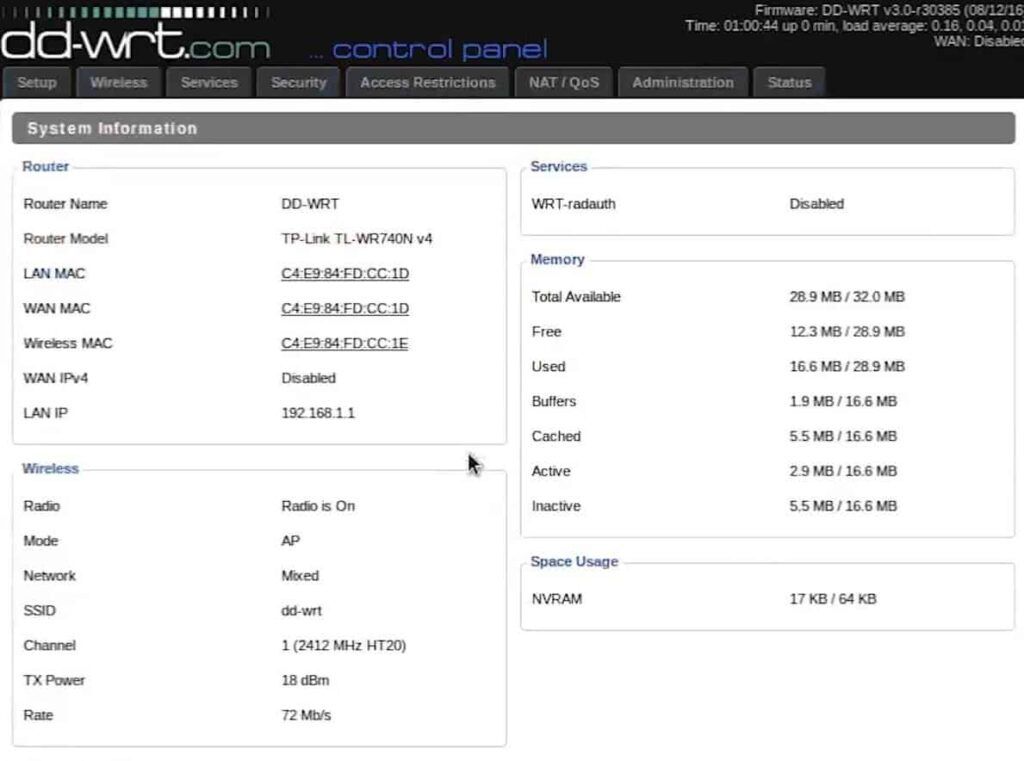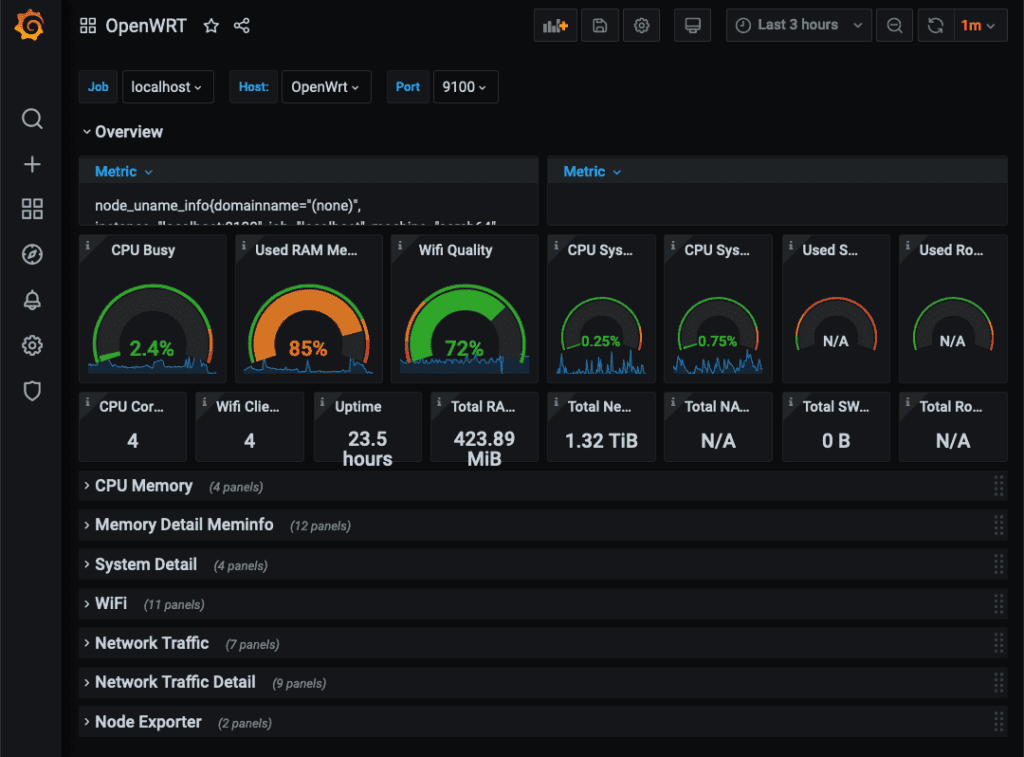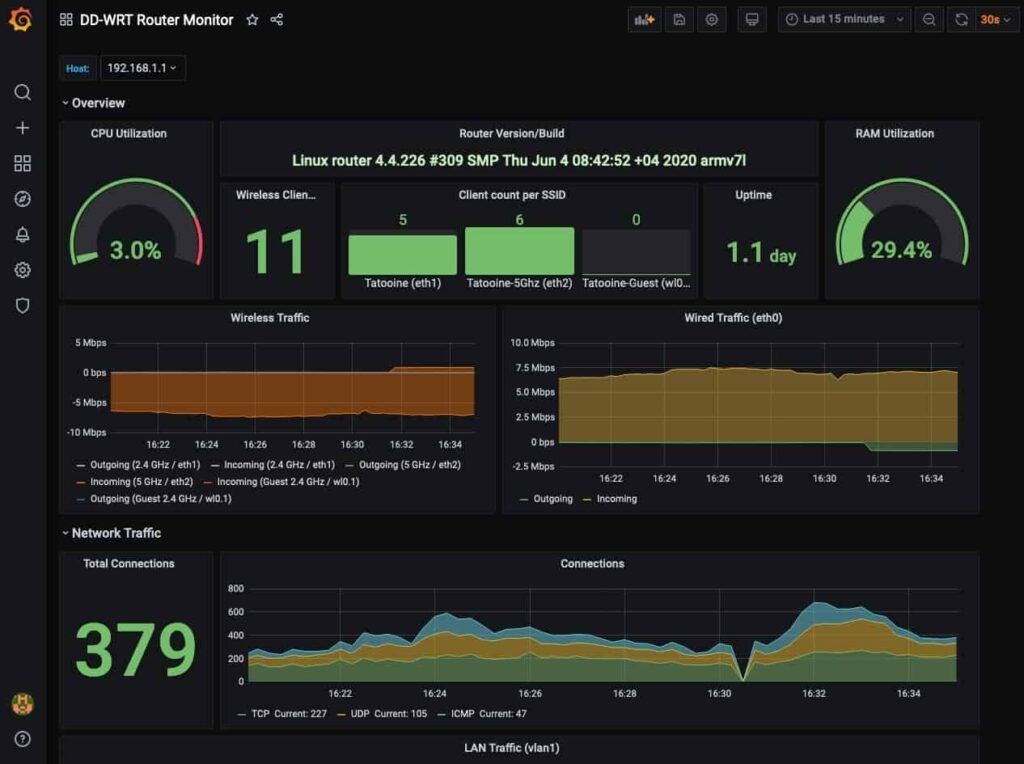DD-WRT vs OpenWrt: The Better Router Firmware in 2025?

DD-WRT and OpenWrt are amongst the best third-party router firmware available. If you’re a power internet user looking to take complete control of your network, you’re better off with one of these. But which one to pick in 2025?
While both rely on Linux programming, there is some difference between DD-WRT and OpenWrt. With months of experience using both firmware, I prepared this comparison to give you enough clarity on choosing between the two.
Key Takeaway: DD-WRT is better than OpenWrt in most aspects, except for customization options and updates.
DD-WRT vs OpenWrt: Key Differences
OpenWrt vs DD-WRT: Detailed Comparison
In this section, I’ll compare both open-source firmware in performance, user-friendliness, frequency of updates, features, and their specific advantage. Let’s go!
1. Compatibility with Routers
This is one area where DD-WRT holds a huge advantage over OpenWrt. DD-WRT actively employs proprietary kernel modules and drivers even for routers that don’t support open-source firmware.
This makes it compatible with a wide range of models, including the older ones from a decade ago, and stronger community support makes it only better.
But then, not all models perform well in all aspects, which is why I tested many models and reviewed the best-performing DD-WRT routers.
Despite being the older project, OpenWRT doesn’t employ most proprietary kernels and drivers, which affects the Wi-Fi operations and has partial compatibility. This drastically reduces the number of routers that support OpenWRT with full-fledged functionality.
2. User Interface & User-Friendliness

Unlike the stock firmware, OpenWRT and DD-WRT are less known for their user-friendly designs. Their prime focus is on enhancing the networking features and functionality and not on being directed towards user-friendliness.

Still, DD-WRT has the advantage of sporting a smoother user interface than OpenWrt. While not being friendly, a transitioning user will have less trouble navigating the DD-WRT interface than the more technical interface of OpenWRT.
3. Features & Functionality
This is an area where OpenWRT takes a huge lead over DD-WRT. DD-WRT features aren’t run-of-the-mill at any level. It has many features that make configuring VPN, QoS, and remote PC access easier, yet OpenWRT brings distinct advantages and different levels of customization power to the user.
With support for mesh features, IP tunneling, access to network statistics, and surveillance features, OpenWRT allows the easy creation of WLAN and guest profiles. Because OpenWRT has gone through build-hardening cycles, it is more secure and stable than its DD-WRT counterpart.
For an advanced network user, OpenWRT will be a more interesting playground. While DDWRT has sufficient features and customization, it’s made easier for users who are comparatively new to networking.
4. Speeds & Consistency
With more regular updates, OpenWrt seemed more stable between the two. That reflects in performance too.
Using buffer bloat methods, OpenWrt improves network speed while decreasing latency and lag, but it was hard to pinpoint the speed improvement.

However, I enjoyed the freedom to assign custom bandwidth for downloads and uploads to specific devices in both OpenWRT and DD-WRT, giving me more internet usage control.

DD-WRT and OpenWRT had inbuilt signal strength indicators, which allowed me to find optimal channel usage and transmitting signal strength, improving the overall performance across data-intense activities.
5. Updates Frequency
OpenWRT, one of the earlier open-source projects, has maintained a habit of releasing periodic firmware updates and is expected to deliver in the future.
With fewer models in their purview, it has also been easier for them to provide firmware updates more frequently.
DDWRT lags in this aspect. While it would be unfair to say that the DD-WRT lacks firmware updates, the burden of supporting a wide range of models makes it feel more inconsistent than its counterpart.
6. Installation & Setup
For a newbie, running through the setup of either DD-WRT or OpenWRT will not be easy. But installing and setting up DD-WRT is much easier with its less complicated approach and slightly better interface.
OpenWRT offers finer controls and a more technical interface that can look intimidating to an inexperienced user.
However, an advanced user would have no trouble creating a bootable USB, downloading the installation image of OpenWRT into the drive, flashing the router, finishing the setup, and playing with the configuration.
Ensure you have sufficient memory in your router before flashing. Without enough memory, you may not complete the installation successfully and end up bricking the router, rendering it useless.
Supported by a large community of users, you will easily find tutorials, guides, and discussions on steps involved in installation and configuration for both firmware.
Pros & Cons of DD-WRT
Pros
- Organized user interface
- Inbuilt QoS & UPnP Support
- Easier to setup
- OpenVPN support
- Compatible with a large list of routers/models
- Inbuilt WAKE on LAN remote access feature
- A large community of users
Cons
- Lack of updates/versions for all models
Pros & Cons of OpenWrt
Pros
- IP tunneling & Network monitoring features
- More stable
- Regularly updated
- Easy upgradeability for existing models
- Plenty of customization options
- Supports VPN and QoS
Cons
- Technical User interface
- Compatible with limited router models
User Testimonials
Here’s what DD-WRT users have to share:
What users had to say about OpenWrt:
Frequently Asked Questions
Is DD-WRT better than OpenWRT?
If you are transitioning from a regular user to a power user, you can play it safe with DD-WRT. It has an easier interface and is less technical than OpenWRT.
What OS is OpenWrt based on?
OpenWRT is based on Linux. OpenWRT is an open-source project by Linux enthusiasts, majorly used for devices routing internet/network traffic.
Is OpenWrt faster than stock?
OpenWRT offers more control over the finer aspects of the devices. Experimented and tested algorithms by a big community of Linux users are prone to deliver superior performance to the stock firmware.
Does OpenWrt and DD-WRT void the warranty?
Yes, flashing your router with OpenWRT or DD-WRT will void the warranty promised by the manufacturer.
Is DD-WRT more secure than OpenWrt?
It depends. While both firmware is Linux-based, by default, they are reliably more secure than your stock firmware at a certain level. For a particular router/model, the security relies on more developers/programmers collectively working on the updates to fix known/discovered vulnerabilities. With more hardened builds, OpenWRT is considered more secure.
Conclusion
Are you curious about the finer aspects of routing devices and networking and asking yourself if moving to DD-WRT is worth it? Yes, it would be a good starting point.
With many models and good community support, it would be easier to learn the nuances. Once you get the hang of things and plan to get more adventurous, you can move on to OpenWRT.
